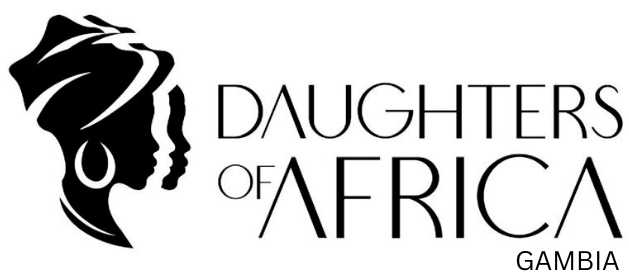
My name is Fatoumatta. I am a 20-year-old Gambian and a student and youth leader for the Daughters of Africa NGO.
The Gambia is in West Africa and 95% of the population are Muslims. It is a country where tradition and culture are held in high regard, followed, and respected. The population of two million people who come from different groups and backgrounds. It is the smallest country in West Africa.
I recently attended a meeting at a youth organisation called KEYDCA where my Director was supporting them in developing their ‘Child Protection and Safeguarding policy. I was very interested, realizing that there is a lot to understand about the safeguarding of young people in the Gambia.
I was brought up in this society, lived within it my whole life, and have attended school level after level until the end of senior secondary school. I have observed the issues with the safety of young girls in The Gambia and the discussion at this meeting. It really made me think about what young girls go through in the Gambia. I feel that they have been subjected to so many inhuman acts that are still being practiced on them such as early marriage, (or should I say early rape). Girls are forced to marry men who they don’t know or have never met before, they are made to look at them as their husbands, given away like a sold item and ordered to obey. Our culture thinks this is fine because a girl child’s rights don’t matter. They then give birth to babies whose bodies are not physically prepared for which often leads to death during labor. Then comes the high rate of female genital mutilation (FGM) which I see as yet another inhuman practice in the name of culture, the pain, the bleeding, the difficulty in passing urine. The event itself is traumatic because girls are held down when the procedure is being inflicted. After all, it comes with so much pain. This torture then continues throughout the girls’ life often leading to painful intercourse and complications in childbirth, sometimes also leading to maternal death and negative effects on the newborn babies.
I too have my own memory. I was just 4 years old when I was
circumcised, bleeding for two days, in pain for weeks, not able to walk for a while, it’s painful to remember. And in my society, these stories repeat themselves becoming normalized.
I also had a relative who was 19 years old at the time she got married but she had problems from the beginning because her vagina was sewn too tight to share a successful first night with her husband. These are painful experiences that weigh down young girls in the Gambia.
Another issue is the challenge girls’ face being unsafe with males both in the school and the society. Male teachers give many girls a hard time, making them targets for long periods without people noticing, often leading up to sexually assaulting the girl.
I know of a girl who was sexually assaulted by a teacher in a local school but later he was released after the Deputy Head pleaded for him saying ‘he was a family man.’
Insult is added to injury when society then treats a girl that has been sexually abused, carrying an unwanted pregnancy as if her life is over. This encourages boys or men to violate more young girls in society and makes them victims.
Parents too are responsible for the lack of safety girls face, in their socialisation of girls. Many parents push their daughters into early labor-sending them out to sell at times that they should be in school, this is exposing them to danger. Girls’ education is not seen as being as important as boys, they should be beneath men, that’s the culture, ‘their necks should not be taller than their heads.’
I believe safety is taken away from girls in The Gambia before they have a chance to understand what safety is, or how to protect themselves.
Despite these comments and my feelings and observations, recently I have begun to have hope that girls’ safety will increase because the government is now prosecuting anyone caught being involved with female genital mutilation and I witnessed the meeting in KEYCDA, a youth organisation where both men and women leaders sat thoughtfully creating a policy on how to safeguard children and young people in The Gambia.
By Fatou
